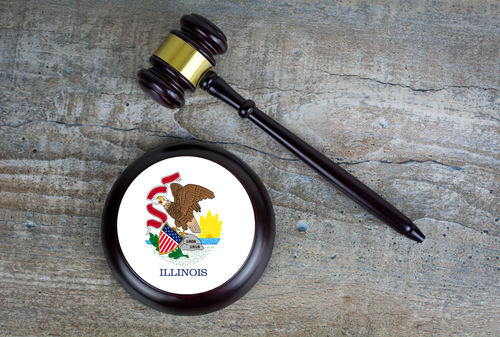In gay-marriage arguments, a protester interrupts and 2 closely watched justices appear cautious

Image from Shutterstock.
As arguments on gay marriage began in the U.S. Supreme Court on Tuesday, two closely watched justices noted the traditional definition of marriage.
Justice Anthony M. Kennedy is viewed as a possible swing voter, but at least one commentator—University of California at Irvine Law Dean Erwin Chemerinsky—has predicted that Chief Justice John G. Roberts Jr. will join Kennedy and the court’s liberals to strike down state bans on gay marriage.
But both justices appeared cautious as the arguments began, according to the New York Times, the National Law Journal (sub. req.) and the Washington Post. SCOTUSblog covered the proceedings in a live blog.
Roberts said he had looked up definitions of marriage and, until about a dozen years ago, they all defined it as a union between a man and a woman. “If you succeed, that definition will not be operable,” Roberts told a lawyer supporting gay marriage. “You are not seeking to join the institution. You are seeking to change the institution.”
Kennedy agreed that the old definition of marriage had been around a long time. “The word that keeps coming to me is ‘millennia,’ ” Kennedy said.
Later, Kennedy appeared more supportive of gay marriage when he asked why same-sex couples didn’t deserve the same “ennoblement” of their relationship as heterosexual couples.
One protester was removed from the courtroom after he interrupted arguments, shouting that those who engage in gay sex will “burn in hell for eternity.”
The consolidated cases before the court are known as Obergefell v. Hodges. In the first argument of the day, justices considered whether the Constitution requires states to grant marriage licenses to same-sex couples. In the second argument, justices were to consider whether states must recognize same-sex marriages performed elsewhere.



